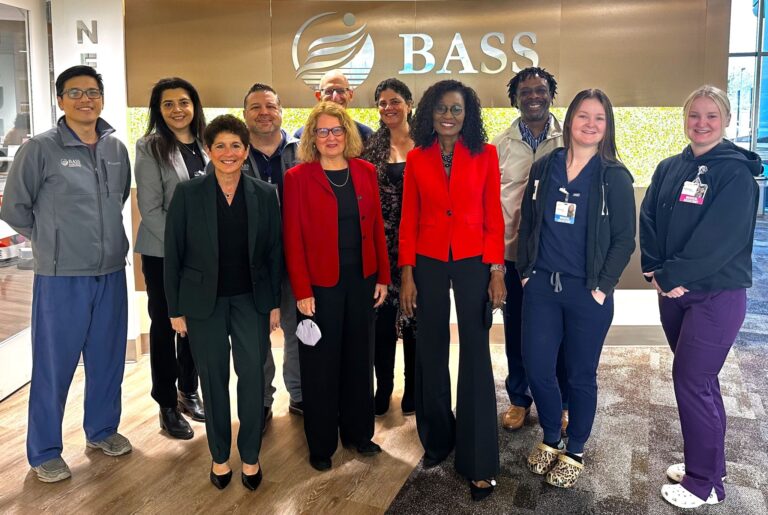
In the midst of contract negotiations
“a physician vacancy does not mean that there is a clinical vacancy, nor that care is compromised.” – Kim McCarl, CCHS
“A bigger medical and dental staff would help alleviate some of the load that our current employed members are carrying.” – Dr. David MacDonald, President, PDOCC
By Allen D. Payton
Last month the Physicians’ and Dentists Organization of Contra Costa (PDOCC) released data showing a high number of doctor vacancies in Contra Costa County Health Services.
According to a Feb. 16, 2023, PDOCC press release, based on county data, there are currently 83 out of 285 employed positions listed as vacant in Contra Costa Health Services, a 29 percent vacancy rate in the system. That includes 27 vacant positions in family medicine and primary care adult medicine, 5 vacant dentist positions and 5 vacant OB/GYN positions. With 19 vacant psychiatrist positions, only 27 percent of employed psychiatry positions are currently filled. 11 vacant employed positions in the emergency department – half of the department’s employed positions – means the county is unable to safely staff the emergency room.
Since November, 5 emergency department doctors have left county employment. The county interviewed and offered positions to 21 new emergency department applicants, but the offer was declined by every applicant.
The problem is expected to get a lot worse in 2024 when Contra Costa County will need an additional 40 primary care providers to care for 30,000 new Medi-Cal patients being added to the county’s health services due to an agreement between the county and California’s Department of Health Services.
The problem continues to worsen. Contra Costa County Health Services added 12,200 patients in the last two months, while only adding 1 new primary care physician. The result is that the average primary care physician employed by the county now has almost 200 more patients on their panel than at the end of 2022. There are no new primary care physicians anticipated to join county employment before July 2023.
On average, the county has only been able to fill three primary care doctor vacancies annually over the last three years.
In response, CCHS Communications Officer Kim McCarl, said doctor shortages are a nationwide challenge, are not compromising care, and confirmed that negotiations between the union and county “are underway”.
She wrote, “We value the medical staff who work across our department.
Health systems across the country are struggling to recruit and retain medical staff at all levels. Contra Costa Health is no different.
It’s important to note that a physician vacancy does not mean that there is a clinical vacancy, nor that care is compromised. We are confident that the right provider is caring for the right patient in the right way at Contra Costa Regional Medical Center and Health Centers every day.
We provide flexibility in work schedule, an emphasis on proactive care, and mission-oriented work that helps us recruit and retain physicians who want to practice in an integrated environment. It’s not uncommon for our physicians to be expert in many areas of clinical medicine which our system values.
We value physicians who embrace our mission and choose to work for Contra Costa Health on a full-time, permanent basis but we also welcome doctors who take a less traditional approach to their careers by working part time or in partnership with other health care entities. These approaches help to alleviate the burnout that has been so costly to hospitals and healthcare systems since the height of the pandemic.
We are proud to be home to one of the most highly rated family medicine training programs in the country. We recruit well-trained physicians who are familiar with our system from each graduating class.
Recruitment and retention of physicians is a top priority at Contra Costa Health. We will continue to explore ways to fill every vacancy across our healthcare system.”
Doctors, Dentists Disagree
That opinion, however, is not shared by the county’s doctors and dentists or by best practice standards for patient care.
The severe shortages most certainly impact patient care, including the time a physician can devote to each patient along with the availability of appointments, according to county doctors.
Contra Costa County’s own policies recommend no more than 1,500 patients to a primary care physician’s panel (the number of patients assigned to a physician). Currently the average panel size for Contra Costa’s employed primary care physicians is 1,879.
“County leaders may be willing to turn a blind eye to severe staffing shortages, but doctors care too much about our patients to let the problem go unaddressed any longer,” said Dr. David MacDonald, PDOCC President. “We hear from patients all the time about how difficult it is for them to schedule appointments in our system. When they finally get an appointment, it is rarely for the amount of time they need because doctors are overstretched and taking on more patients because of all the vacancies. The patients who rely on Contra Costa County Health Services for care should not have to settle for less time and attention than patients in other systems or ones with private healthcare.”
In addition to the primary care vacancies, there are 5 vacant dentist positions and 5 vacant OB/GYN positions. With 19 vacant psychiatrist positions, only 27 percent of employed psychiatry positions are currently filled. 11 vacant employed positions in the emergency department – half of the department’s employed positions – means the county is unable to safely staff the emergency room.
The problem is expected to get exponentially worse in 2024 when Contra Costa County will need an additional 40 primary care providers to care for 30,000 new Medi-Cal patients being added to the county’s health services due to an agreement between the county and California’s Department of Health Services.
PDOCC is calling on county leaders to be proactive by filling the position vacancies which will improve patient care and support county revenues. “It’s hard to believe that Contra Costa County is not working more closely with our union to help it become more attractive and competitive in retaining and recruiting medical and dental talent. I believe the county is moving in the wrong direction and I’m concerned that patients are being put at risk,” MacDonald said.
PDOCC members are currently in negotiations with county management towards a new contract. Issues raised in negotiations by PDOCC members include high patient caseloads, insufficient time for administrative tasks, long waits for primary care appointments and specialty referrals, chronic short staffing and high turnover – all of which combine to negatively impact patient care and health impacts. PDOCC members also state that burnout is at an all-time high.
County Health, PDOCC Respond to Questions
Questions were sent to both McCarl and the union’s spokesman asking if the PDOCC is in the midst of contract negotiations with the county and if so, is this an effort to obtain an increase in compensation for its members.
While McCarl responded, “Yes, negotiations are underway” she did not respond to the additional question about their criticism.
The questions were also sent Tuesday afternoon to PDOCC president, Dr. MacDonald with the .
He responded, “PDOCC is engaged with Contra Costa County in negotiations at the level of state mediation. We have one more session to go.
We are focused on improving patient care and making the workplace in Contra Costa Health Services (CCHS) more sustainable.
We have to be able to hire new medical and dental talent, so compensation has to be more market competitive. This would also help with retention. A bigger medical and dental staff would help alleviate some of the load that our current employed members are carrying. The situation at this time is untenable. And, per an agreement between CCHS and the state’s Department of Health Services, CCHS will become the single system to provide care for MediCal patients in the county (aside from small fraction of MediCal patients covered by Kaiser). This will mean for an additional 30,000 new patients into our system as of January 1, 2024. We’re not ready for that. We will need an additional 40 new primary care providers to handle the influx of new patients. The County is nowhere close to hiring that many (I believe the County has 3 new providers scheduled to start after July of this year).
In addition, half of our emergency department employed positions are vacant. This means that the County partially fills the gap with very expensive temp doctors. We think it would be smarter for the County to take the funds doled out to temps and invest that money in committed, dedicated and County career minded docs who will be here for the long term.
Another issue is that our primary care providers need more protected time to manage their patient panels. The in-basket work – lab follow up, med refills, answering patient calls & emails, etc., has been escalating. Our physicians take this work home with them and it takes away time from their families and individual restorative activities.
All of this after the three-year pandemic onslaught has left our physicians and dentists suffering more from burnout than ever before. The County must step up, be proactive, and work with our union on how to achieve meaningful improvements that will enhance patient care and move our system in the right direction.”
















 The Physicians’ and Dentists’ Organization of Contra Costa
The Physicians’ and Dentists’ Organization of Contra Costa
















